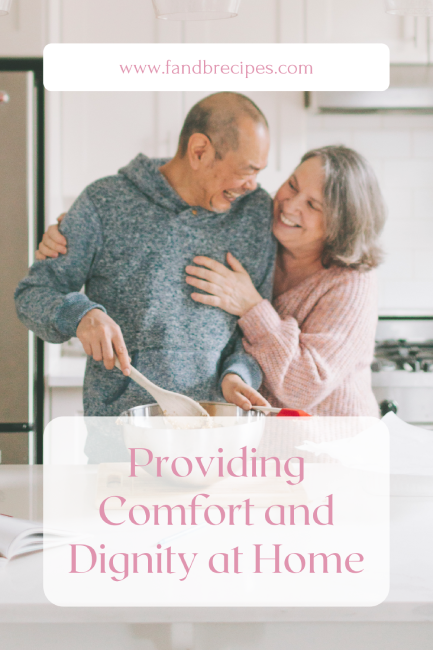Providing Comfort and Dignity at Home
Maintaining comfort and dignity at home becomes a priority as you navigate the challenges of ageing or illness. Creating a space that promotes both physical and emotional well-being is essential. This is especially important when mobility or health issues make it difficult to complete daily tasks or maintain independence. Below, we explore how to provide comfort and dignity to loved ones, allowing them to feel safe and respected within their home environment.
Adapting the Home for Accessibility
One of the first steps in ensuring comfort and dignity at home is creating an accessible living space. This might include installing grab bars in bathrooms, widening doorways, or using ramps for entryways. For those who require a wheelchair, it’s important to ensure that hallways, rooms, and even furniture are arranged to provide enough space for easy movement. Choosing furniture with supportive cushions and ergonomic design can provide much-needed comfort.
Accessibility doesn’t end with mobility aids; it also involves addressing the layout and usability of the home. For instance, ensuring that frequently used items are within easy reach, and reducing the need to bend or stretch, can make a significant difference. A home adapted for accessibility fosters a sense of independence and reduces frustration.
What does personal care involve? It includes a range of services designed to assist with daily activities such as bathing, dressing, meal preparation, and mobility support, ensuring individuals maintain their dignity and well-being at home.
Maintaining Personal Care and Hygiene
Personal care is an essential part of maintaining dignity. Providing support for hygiene routines, such as bathing, grooming, and dressing, in a respectful and non-intrusive manner can help preserve the individual’s self-esteem. It’s important to use products that promote comfort, such as cushioned mats for the bathroom, adjustable showers, and waterproof clothing.
For individuals with limited mobility, bath lifts or seated showers can ensure safety while providing the person with a sense of autonomy. Furthermore, encouraging regular grooming and offering products like easy-to-use grooming tools or clothing with adaptive features can make self-care easier, allowing the person to maintain as much independence as possible.
Fostering Emotional Well-Being
While physical comfort is crucial, emotional well-being also plays a significant role in maintaining dignity. Creating a positive, supportive atmosphere at home is vital. Family members and caregivers can help by ensuring that the individual feels heard, valued, and respected. Encouraging open communication, acknowledging achievements, and involving the individual in decisions about their care can foster a sense of control and dignity.
Incorporating social interactions is also important. Whether through family visits, virtual chats, or community involvement, maintaining social connections helps reduce feelings of isolation. Additionally, having a routine that includes hobbies, activities, or simple pleasures can improve the quality of life.
The Role of Technology in Home Comfort
In today’s world, technology can play an essential role in improving comfort and dignity at home. Devices like voice-activated assistants, which help with tasks such as controlling lights, and temperature, or even making phone calls, can make daily activities easier. Smart home technologies allow individuals to control their environment more, enhancing comfort and independence.
Furthermore, assistive devices like fall detection systems or emergency buttons can provide peace of mind, knowing that help is available if needed. For those with hearing or vision impairments, there are also adaptive technologies such as amplified phones, smart speakers, and visual alert systems that can improve communication and safety.
In Conclusion
Creating a home that provides both comfort and dignity requires thoughtful planning, adjustments, and support. By focusing on accessibility, personal care, emotional well-being, and incorporating modern technology, individuals can live with greater ease and self-respect in their own homes. Whether it’s making simple home modifications or offering emotional support, the goal is to ensure that everyone feels safe, valued, and independent, regardless of their health challenges or mobility needs.
Shristi is an avid reader, recipe developer and wellness enthusiast. She’s probably making a mess in her kitchen right now.




